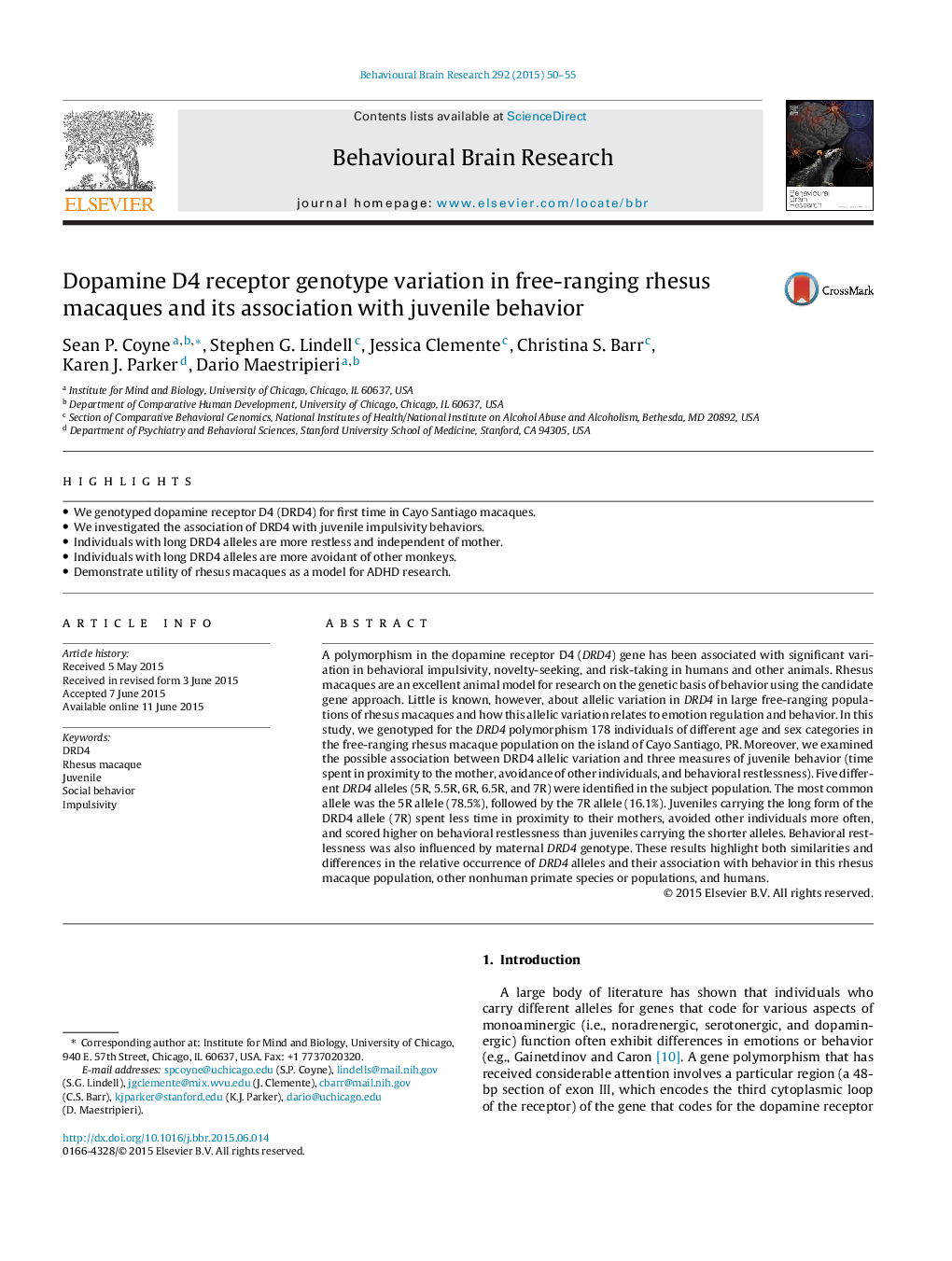| کد مقاله | کد نشریه | سال انتشار | مقاله انگلیسی | نسخه تمام متن |
|---|---|---|---|---|
| 6256464 | 1612940 | 2015 | 6 صفحه PDF | دانلود رایگان |

- We genotyped dopamine receptor D4 (DRD4) for first time in Cayo Santiago macaques.
- We investigated the association of DRD4 with juvenile impulsivity behaviors.
- Individuals with long DRD4 alleles are more restless and independent of mother.
- Individuals with long DRD4 alleles are more avoidant of other monkeys.
- Demonstrate utility of rhesus macaques as a model for ADHD research.
A polymorphism in the dopamine receptor D4 (DRD4) gene has been associated with significant variation in behavioral impulsivity, novelty-seeking, and risk-taking in humans and other animals. Rhesus macaques are an excellent animal model for research on the genetic basis of behavior using the candidate gene approach. Little is known, however, about allelic variation in DRD4 in large free-ranging populations of rhesus macaques and how this allelic variation relates to emotion regulation and behavior. In this study, we genotyped for the DRD4 polymorphism 178 individuals of different age and sex categories in the free-ranging rhesus macaque population on the island of Cayo Santiago, PR. Moreover, we examined the possible association between DRD4 allelic variation and three measures of juvenile behavior (time spent in proximity to the mother, avoidance of other individuals, and behavioral restlessness). Five different DRD4 alleles (5R, 5.5R, 6R, 6.5R, and 7R) were identified in the subject population. The most common allele was the 5R allele (78.5%), followed by the 7R allele (16.1%). Juveniles carrying the long form of the DRD4 allele (7R) spent less time in proximity to their mothers, avoided other individuals more often, and scored higher on behavioral restlessness than juveniles carrying the shorter alleles. Behavioral restlessness was also influenced by maternal DRD4 genotype. These results highlight both similarities and differences in the relative occurrence of DRD4 alleles and their association with behavior in this rhesus macaque population, other nonhuman primate species or populations, and humans.
Journal: Behavioural Brain Research - Volume 292, 1 October 2015, Pages 50-55